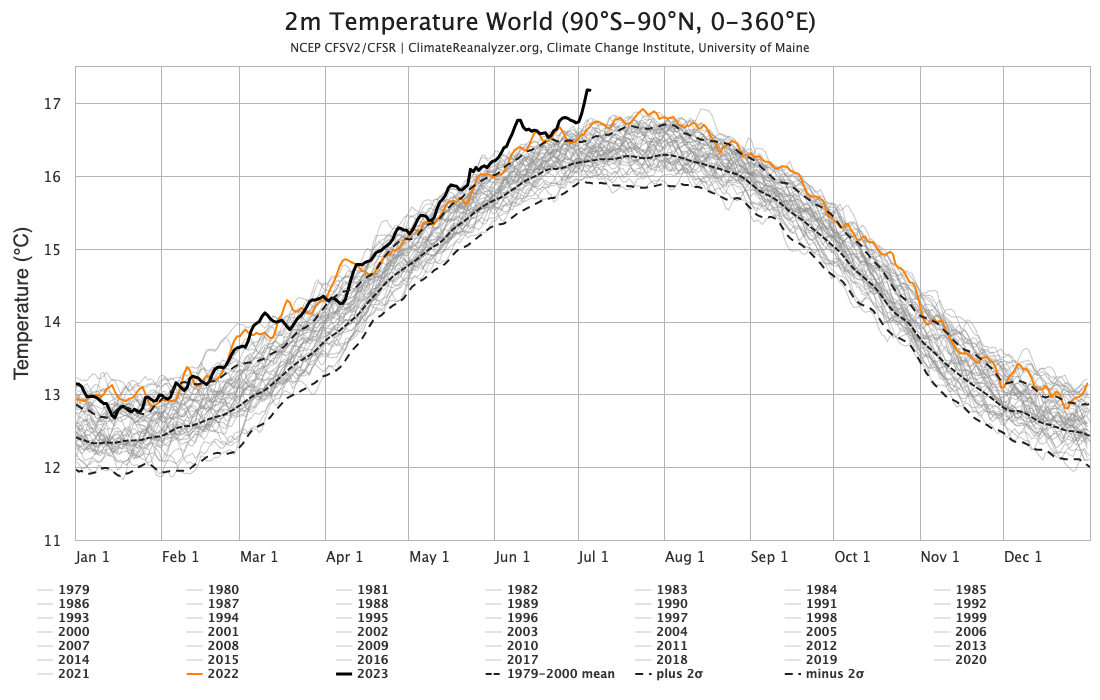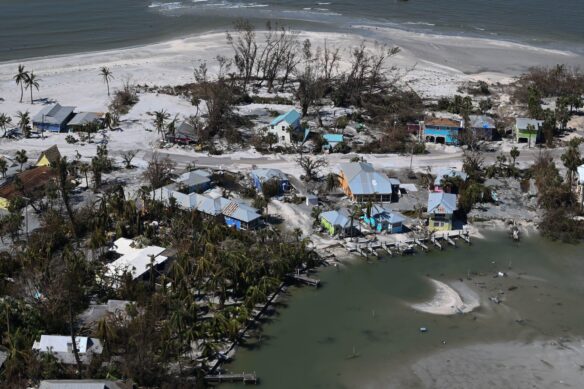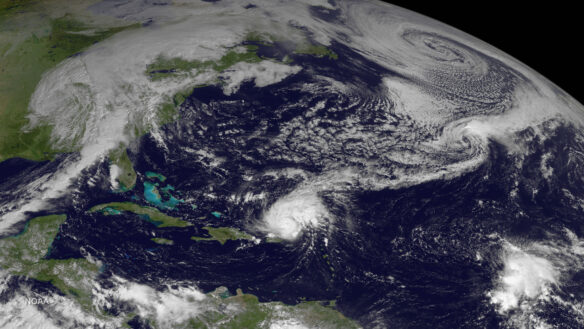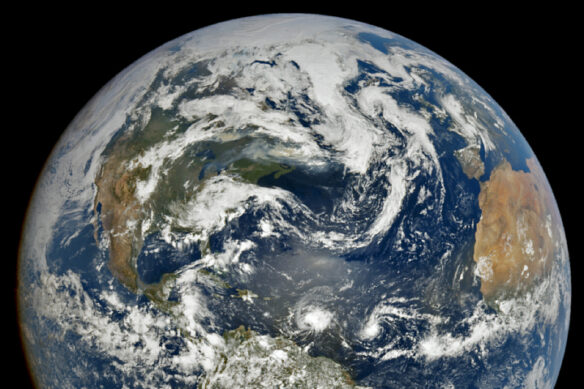“We have never seen anything like this before”
– Carlo Buontempo, director of Europe’s Copernicus Climate Change Service quoted in the Washington Post, 07-06-2023.
More from the article:
Scientists say to brace for more extreme weather and probably a record-warm 2023 amid unprecedented temperatures.
New precedents have been set in recent weeks and months, surprising some scientists with their swift evolution: historically warm oceans, with North Atlantic temperatures already nearing their typical annual peak; unparalleled low sea ice levels around Antarctica, where global warming impacts had, until now, been slower to appear; and the planet experiencing its warmest June ever charted, according to new data.
And then, on Monday, came Earth’s hottest day in at least 125,000 years. Tuesday was hotter.
“We have never seen anything like this before,” said Carlo Buontempo, director of Europe’s Copernicus Climate Change Service. He said any number of charts and graphs on Earth’s climate are showing, quite literally, that “we are in uncharted territory.”
It is no shock that global warming is accelerating — scientists were anticipating that would come with the onset of El Niño, the infamous climate pattern that reemerged last month. It is known for unleashing surges of heat and moisture that trigger extreme floods and storms in some places, and droughts and fires in others.
But the hot conditions are developing too quickly, and across more of the planet, to be explained solely by El Niño. Records are falling around the globe many months ahead of El Niño’s peak impact, which typically hits in December and sends global temperatures soaring for months to follow…

More articles on the hottest day on record:

Washed Away – AARP
As more older Americans move to the coasts, rising seas are wiping out their homes — and retirement dreams…

How this summer’s brutal hurricanes might one day save lives – Grist Magazine
Cyclones aren’t just made of wind and rain — they’re full of data. That’ll help researchers improve the forecasts that determine whom to evacuate…

Emerging La Niña could play major role in this year’s hurricane season – the San Francisco Chronicle
On Thursday, the National Oceanic Atmospheric Administration released its 2024 hurricane season outlook. The agency predicts an active season in the Atlantic hurricane region, with its most aggressive May forecast on record. The Atlantic hurricane region includes the north Atlantic Ocean, Caribbean Sea and Gulf of Mexico….
Additional Multimedia:









